Pathology
Pathology is the study of the causes and effects of disease or injury. It involves examining tissues, organs, bodily fluids, and autopsies to understand the nature and causes of diseases. This field is essential for the diagnosis and treatment of various medical conditions.
Study Guide
- Introduction to Pathology: Understand the basic concepts of pathology, including the types of diseases, causes of diseases, and the role of pathology in medicine.
- Cellular Pathology: Learn about cellular adaptations, cellular injury, inflammation, and repair processes at the cellular level.
- Organ System Pathology: Study the pathology of specific organ systems, such as cardiovascular, respiratory, gastrointestinal, and nervous systems. Understand the diseases that affect these systems and their pathological mechanisms.
- Neoplasia: Explore the pathology of tumors, including the causes of cancer, tumor growth, and the principles of cancer treatment.
- Diagnostic Pathology: Learn about the methods used to diagnose diseases, including histopathology, cytopathology, and molecular pathology.
- Forensic Pathology: Understand the role of pathology in determining the cause of death in forensic investigations.
- Research in Pathology: Explore the current research and advancements in pathology, including the use of technology and molecular techniques in disease diagnosis and treatment.
Studying pathology requires a strong foundation in biology, anatomy, and physiology. It also involves critical thinking and analytical skills to understand and interpret pathological findings.
Pathology is a dynamic field that plays a crucial role in the practice of medicine and healthcare. Understanding the principles of pathology is fundamental for medical professionals to diagnose and treat various diseases effectively.
.◂Biology Worksheets and Study Guides High School. Genetics and heredity II
Worksheet/Answer key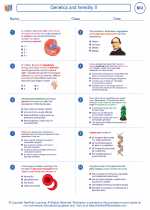 Genetics and heredity II
Genetics and heredity II  Worksheet/Answer key
Worksheet/Answer key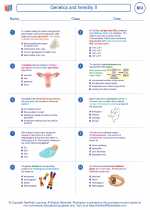 Genetics and heredity II
Genetics and heredity II  Worksheet/Answer key
Worksheet/Answer key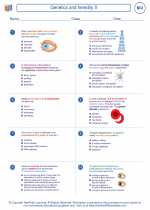 Genetics and heredity II
Genetics and heredity II  Vocabulary/Answer key
Vocabulary/Answer key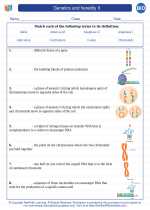 Genetics and heredity II
Genetics and heredity II  Vocabulary/Answer key
Vocabulary/Answer key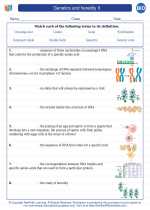 Genetics and heredity II
Genetics and heredity II  Vocabulary/Answer key
Vocabulary/Answer key Genetics and heredity II
Genetics and heredity II  Vocabulary/Answer key
Vocabulary/Answer key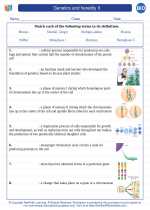 Genetics and heredity II
Genetics and heredity II  Vocabulary/Answer key
Vocabulary/Answer key Genetics and heredity II
Genetics and heredity II  Vocabulary/Answer key
Vocabulary/Answer key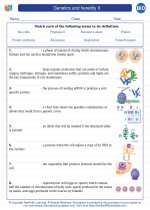 Genetics and heredity II
Genetics and heredity II  Vocabulary/Answer key
Vocabulary/Answer key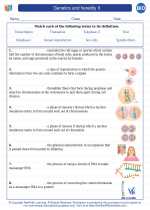 Genetics and heredity II
Genetics and heredity II 

 Worksheet/Answer key
Worksheet/Answer key
 Worksheet/Answer key
Worksheet/Answer key
 Vocabulary/Answer key
Vocabulary/Answer key
 Vocabulary/Answer key
Vocabulary/Answer key
 Vocabulary/Answer key
Vocabulary/Answer key
 Vocabulary/Answer key
Vocabulary/Answer key
 Vocabulary/Answer key
Vocabulary/Answer key
 Vocabulary/Answer key
Vocabulary/Answer key
 Vocabulary/Answer key
Vocabulary/Answer key

The resources above cover the following skills:
LIFE SCIENCE (NGSS)
Heredity: Inheritance and Variation of Traits
Students who demonstrate understanding can:
Ask questions to clarify relationships about the role of DNA and chromosomes in coding the instructions for characteristic traits passed from parents to offspring.